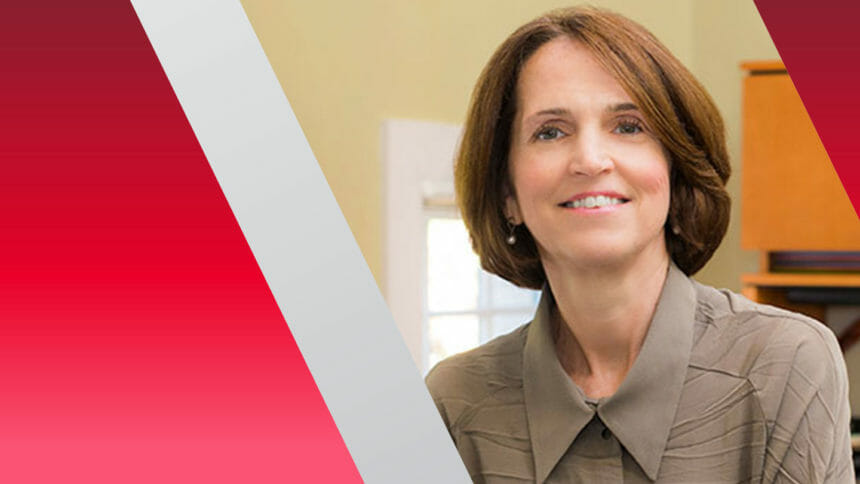
WASHINGTON, D.C. — As members gathered Monday to prepare for in-person and virtual meetings with lawmakers here this week, LeadingAge President and CEO Katie Smith Sloan shared her disappointment that a goal to boost federal funding to improve staff pay hasn’t gotten more consideration by lawmakers.
“We were getting some really good traction with Build Back Better and some real interest and some real understanding that the Medicaid program was underfunded. And then, obviously all that came to a screeching halt … and everybody’s attention has been shifted to other very important things,” she told McKnight’s Long-Term Care News after a conference keynote session at the Omni Shoreham hotel. “But to me, it’s not even an option to not increase FMAP so that we can increase wages.”
A Congressional increase in federal medical assistance percentages, or FMAP, dollars was one of four key strategies for improving the aging services sector that Sloan included in an editorial that ran this weekend in The Hill, a publication widely read on Capitol Hill. LeadingAge argues that higher FMAP funding and a requirement for states to reimburse providers for the true cost of care could help operators retain frontline staff.
Sloan argued that both the federal government and its state partners share responsibility for inadequate funding, low staff wages and the failure to measure and improve quality. She also said both quality of care and staffing work “hand-in-hand — and neither can be achieved without sufficient funding.”
She also called for immediate changes in immigration policy to allow foreign nursing staffing hired by long-term care communities to get to the United States as quickly as possible. In addition, she wants officials to address price gouging by temporary staffing agencies.
Sloan said providers want more than anything to hire and train more people but “we need help from Congress and the administration to get there.”
“It’s really egregious what’s going on….There are some states that already have caps in place, and there are others that are considering it,” Sloan told McKnight’s. “Our members really hate having to rely on agency, not just for the money but because you just don’t have consistency. That compromises quality.”
Nearly 800 LeadingAge members are gathered in the nation’s capital this week to talk about leadership and business strategies, with nearly 100 members scheduled to visit with lawmakers either virtually or in person. That’s about the same number as in pre-pandemic 2019, Smith Sloan said, when advocacy visits were held in person.




